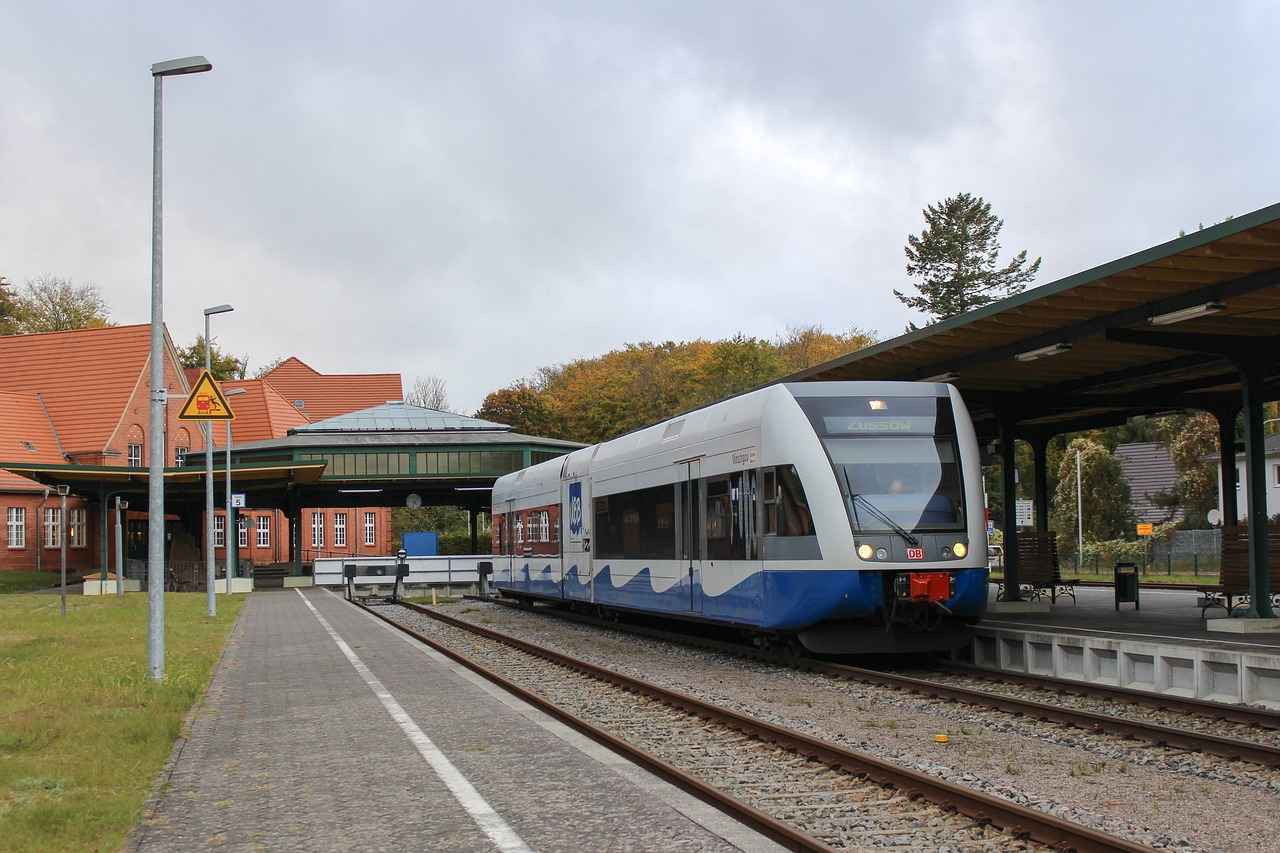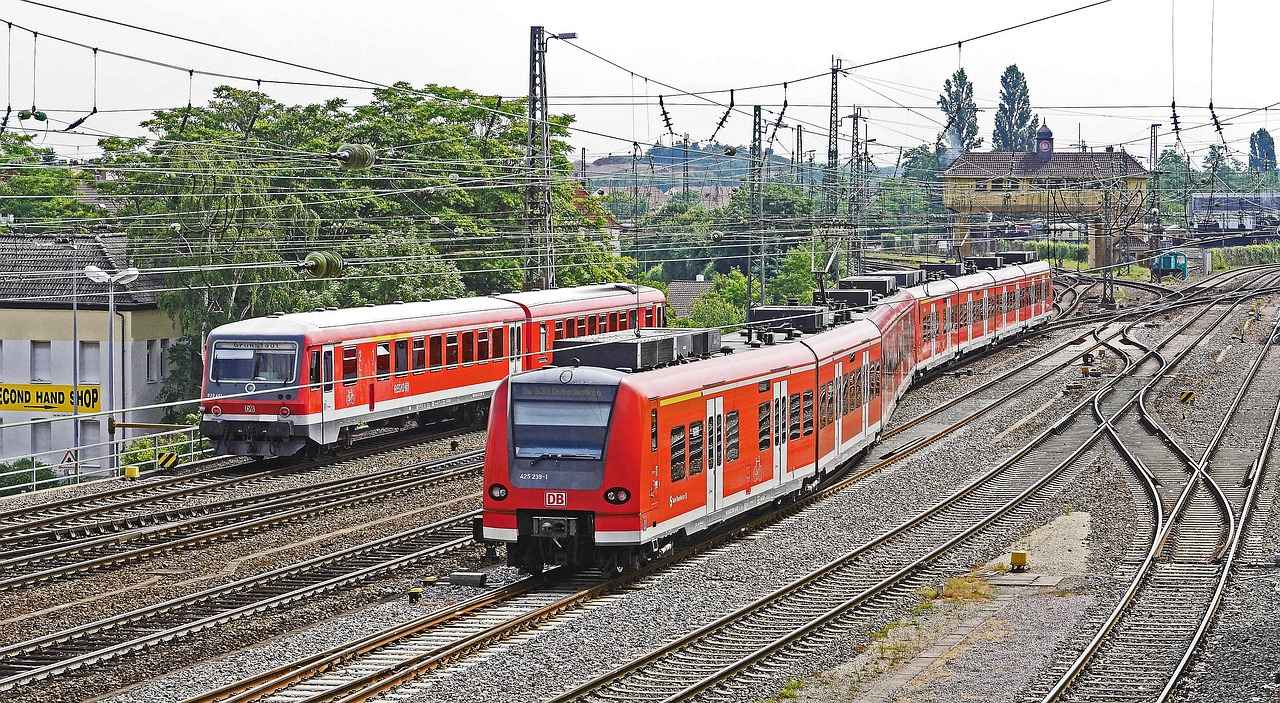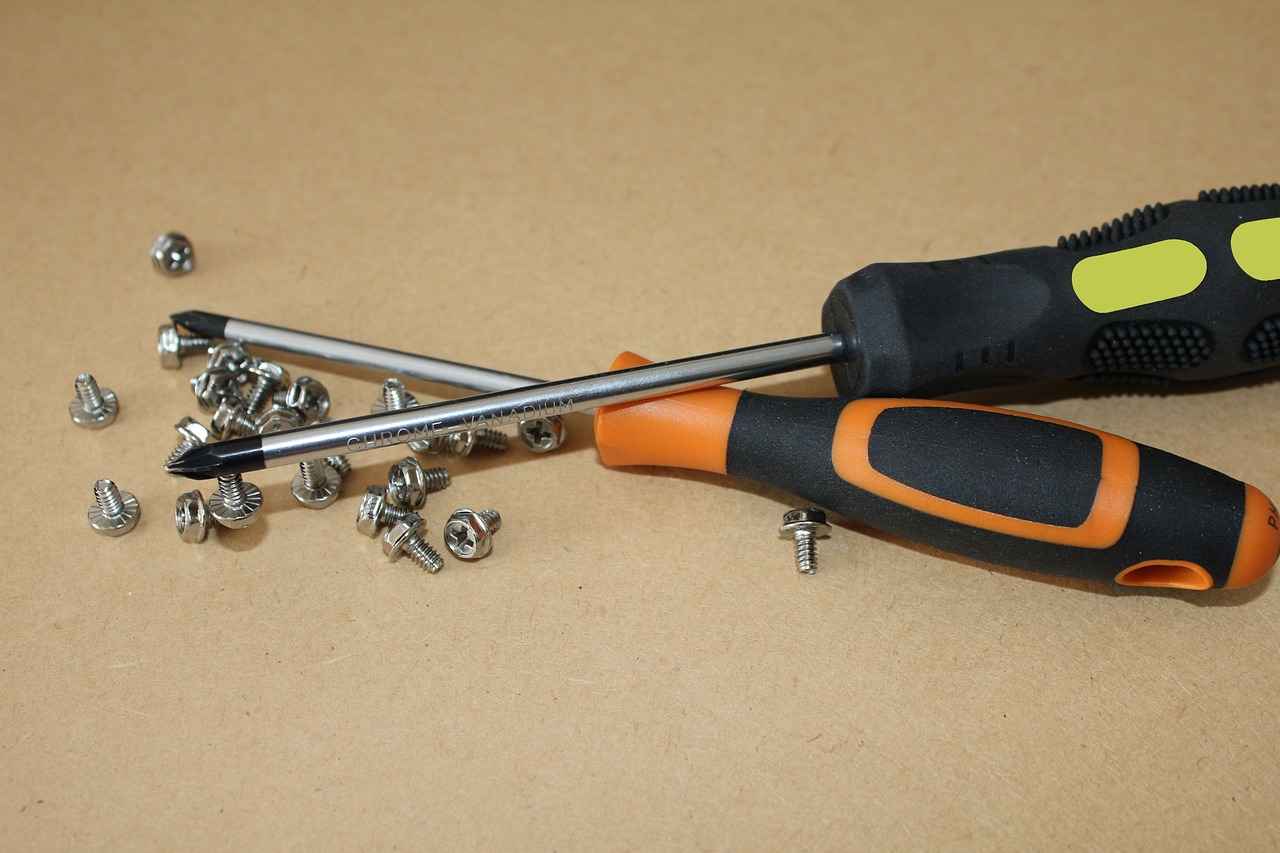Using an air conditioning unit in a basement can significantly enhance comfort, especially during hot summer months. This article provides essential tips and insights on how to effectively use an air conditioning unit in a basement, ensuring optimal cooling and comfort.
Cooling a basement is crucial for several reasons. Firstly, it helps maintain a comfortable living environment, making the space more usable for various activities. Additionally, effective cooling prevents moisture-related issues, such as mold and mildew, which can thrive in warmer, humid conditions. By keeping the basement cool, you also protect stored items from potential damage caused by excessive heat and humidity.
Selecting the right air conditioning unit is vital for effective cooling in basements. The most common types of AC units suitable for basements include:
- Window AC Units: These units are affordable and easy to install, making them a popular choice. They are effective for smaller basements but may require a window for installation.
- Portable AC Units: Offering flexibility, these units can be moved around as needed. They are ideal for larger basements or spaces where permanent installation is not feasible.
Proper installation is key to maximizing the efficiency of your AC unit. Here are some essential steps to consider:
The placement of your AC unit can significantly impact its performance. Ideally, it should be located in a central area of the basement to ensure optimal airflow. Avoid placing it near heat sources or in direct sunlight.
Good ventilation is essential for effective cooling. Ensure that there is adequate airflow around the unit, and consider installing vents or fans to enhance air circulation and prevent humidity buildup.
Regular maintenance is necessary to ensure longevity and efficiency. Key maintenance tasks include:
Keeping filters and coils clean is crucial for the efficiency of your AC unit. Clean or replace filters every month during peak usage times to maintain airflow and cooling performance.
Inspect your unit for any leaks and ensure that insulation is intact. Poor insulation can lead to energy loss and reduced cooling efficiency. Address any gaps or leaks promptly to maintain optimal performance.
Enhancing the efficiency of your basement cooling system can lead to better comfort and reduced energy costs. Here are some strategies:
Dehumidifiers can work alongside your AC unit to reduce moisture levels in the air. This combination not only improves comfort but also enhances the efficiency of the cooling system.
Sealing gaps around windows and doors is essential to prevent cool air from escaping. Use weather stripping or caulk to ensure that your basement remains cool and energy-efficient.
Understanding potential issues with your AC unit can help you troubleshoot problems effectively. Common challenges include:
High humidity levels can affect the performance of your AC unit. To manage humidity, consider using a dehumidifier or adjusting the settings on your AC unit to better handle moisture.
Poor airflow can lead to uneven cooling in your basement. Check for obstructions around the unit and consider using additional fans to improve air distribution.
By following these tips and insights, you can effectively use an air conditioning unit in your basement, ensuring a cool and comfortable environment for you and your family.

Why is Cooling a Basement Important?
Cooling a basement is often overlooked, yet it plays a crucial role in maintaining a comfortable living space. Many homeowners may not realize that an adequately cooled basement can significantly enhance the overall atmosphere of the home. Understanding the importance of cooling your basement can help prevent various issues and contribute to a healthier environment.
Firstly, a cooler basement helps to maintain a comfortable living environment. Basements are typically enclosed spaces that can trap heat and humidity, leading to discomfort during the warmer months. By cooling the basement, you create a more pleasant area that can be utilized for various purposes, such as a home office, gym, or entertainment area.
Moreover, cooling your basement is essential to prevent moisture-related issues. High humidity levels can lead to the growth of mold and mildew, which can cause serious health problems for you and your family. Mold spores can trigger allergies and respiratory issues, making it vital to keep the air in your basement dry and cool. A well-functioning air conditioning unit can help regulate humidity levels, ensuring a healthier environment.
Additionally, a cooled basement can contribute to the energy efficiency of your home. When the basement is too warm, it can cause your HVAC system to work harder to cool the upper levels of your home, leading to increased energy consumption and higher utility bills. By maintaining a cooler basement, you can alleviate some of the workload on your air conditioning system, ultimately saving money on energy costs.
Another significant reason to cool your basement is to protect your home’s structure. Excess moisture can lead to structural damage over time, as it can weaken foundations and cause wood rot. By keeping your basement cool and dry, you help to preserve the integrity of your home.
In summary, understanding the significance of cooling your basement is vital for maintaining a comfortable living environment, preventing moisture-related issues, enhancing energy efficiency, and protecting your home’s structure. Taking the necessary steps to cool your basement can lead to a healthier, more enjoyable living space for you and your family.
- Comfort: A cooled basement provides a pleasant atmosphere for relaxation and activities.
- Health: Reducing humidity levels helps prevent mold and mildew growth.
- Energy Efficiency: A cooler basement can lower energy costs by reducing HVAC workload.
- Structural Integrity: Protects your home from moisture-related damage.

What Type of AC Unit is Best for Basements?
When it comes to maintaining a comfortable environment in your basement, selecting the right air conditioning unit is essential. Basements often present unique challenges, such as limited airflow and higher humidity levels, making the choice of AC unit particularly important. In this article, we will explore the various types of air conditioning units that are best suited for basement cooling, ensuring you make an informed decision.
Basements are often cooler than the rest of the house due to their underground location. However, without proper air conditioning, they can become stuffy and humid. Choosing the right air conditioning unit helps combat these issues, providing a comfortable space that can be used for various purposes, such as a home office, gym, or entertainment area.
There are several types of air conditioning units available that can effectively cool your basement. Here are the most common options:
- Window AC Units: These are a popular choice for basements due to their affordability and straightforward installation. Window units fit into a window frame, allowing for easy setup. They are effective for cooling small to medium-sized basements but may struggle with larger spaces.
- Portable AC Units: Offering flexibility, portable AC units can be moved from room to room as needed. They are particularly useful in basements where window access may be limited. However, they typically require a venting system through a window or door, which can impact their efficiency.
- Split-System AC Units: These systems consist of an outdoor compressor and an indoor air handler. They are ideal for larger basements, providing powerful cooling and better energy efficiency. Split systems can also be less noisy than window or portable units, enhancing comfort.
- Central Air Conditioning: If your home already has a central HVAC system, extending it to include your basement can be a great option. Central air conditioning provides consistent cooling throughout the entire home, including the basement, but may require a more significant investment and professional installation.
When selecting an air conditioning unit for your basement, consider the following factors:
- Size: The size of the unit should match the square footage of your basement. A unit that is too small will struggle to cool the space, while one that is too large may lead to inefficient energy use.
- Energy Efficiency: Look for units with high SEER (Seasonal Energy Efficiency Ratio) ratings. Energy-efficient units not only save you money on energy bills but also help reduce your carbon footprint.
- Noise Level: Consider how noisy the unit is, especially if you plan to use the basement as a living space. Portable and window units can be noisier than split systems or central air conditioning.
- Humidity Control: Basements tend to have higher humidity levels. Choose an AC unit that offers dehumidification features to maintain a comfortable environment.
In summary, selecting the right air conditioning unit for your basement is crucial for effective cooling and comfort. Whether you opt for a window unit, portable AC, split-system, or central air conditioning, understanding your specific needs and the unique characteristics of your basement will guide you in making the best choice. By considering factors such as size, energy efficiency, noise level, and humidity control, you can ensure a refreshing and pleasant basement environment.
Window AC Units
When it comes to cooling a basement, have emerged as a highly favored option among homeowners. Their affordability and ease of installation make them an attractive choice, particularly for spaces that require effective temperature regulation without breaking the bank. However, before deciding on this type of air conditioning unit, it’s essential to weigh both the benefits and potential drawbacks.
- Cost-Effective Solution: Window AC units are generally less expensive than central air conditioning systems, making them a practical choice for budget-conscious homeowners.
- Simplicity of Installation: Unlike split systems, window units can be installed without professional assistance, allowing homeowners to save on installation costs.
- Energy Efficiency: Many modern window AC units come with energy-saving features, helping to keep electricity bills manageable while still providing effective cooling.
- Localized Cooling: These units allow for targeted cooling, meaning you can cool only the basement when needed, which can be more efficient than cooling the entire house.
- Limited Cooling Capacity: Window units may not be sufficient for larger basements, potentially leading to uneven cooling.
- Noise Levels: Some window units can be noisy, which may be disruptive in a living space.
- Installation Challenges: While installation is generally straightforward, some windows may require modifications, which can complicate the process.
- Obstructed View: Installing a window unit can block natural light and views, which may be undesirable for some homeowners.
When selecting a window AC unit for your basement, consider the following factors:
- Cooling Capacity: Measure the square footage of your basement and choose a unit with an appropriate BTU rating to ensure effective cooling.
- Energy Efficiency Ratio (EER): Look for units with a high EER rating, indicating better energy efficiency.
- Noise Level: Check the decibel rating of the unit to ensure it meets your noise tolerance.
- Features: Consider additional features such as programmable timers, remote controls, and energy-saving modes for added convenience.
Proper installation is crucial for maximizing the performance of your window AC unit:
- Choose the Right Window: Ensure the window you select can support the weight of the AC unit and allows for proper airflow.
- Seal Gaps: Use weatherstripping or insulation to seal any gaps around the unit to prevent air leaks and improve efficiency.
- Ensure Proper Drainage: Make sure the unit is slightly tilted to allow for proper drainage of condensation.
Regular maintenance is essential to keep your window AC unit running efficiently:
- Clean or Replace Filters: Check and clean the air filters monthly to ensure optimal airflow and efficiency.
- Inspect Coils: Clean the condenser and evaporator coils at least once a year to prevent buildup that can hinder performance.
- Check for Leaks: Regularly inspect the unit for refrigerant leaks and address any issues promptly.
In summary, while offer a practical solution for cooling basements, it is essential to carefully consider their benefits and drawbacks. By choosing the right unit and following proper installation and maintenance practices, homeowners can enjoy a comfortable and cool basement environment.
Portable AC Units
have become increasingly popular in recent years, especially for those seeking flexibility and convenience in cooling options. These units are particularly well-suited for basement cooling, as they can be easily moved and positioned to target specific areas that need cooling. In this section, we will explore how portable AC units work, their advantages over traditional air conditioning systems, and why they are an excellent choice for basement environments.
Portable AC units operate by drawing in warm air from the room, cooling it using refrigerant, and then circulating the cooled air back into the space. Most portable units come equipped with a hose that expels warm air outside, which is essential for effective cooling. This makes them a versatile option, as they can be set up in various locations without the need for permanent installation.
- Flexibility: Unlike traditional window or split systems, portable AC units can be easily relocated from one room to another, allowing you to cool specific areas as needed.
- Easy Installation: Setting up a portable AC unit typically requires minimal effort. Most models come with a simple kit that includes a window adapter for venting hot air outside.
- Cost-Effective: Portable AC units are often more affordable than central air conditioning systems, making them an attractive option for homeowners on a budget.
- Space-Saving: These units do not require an external condenser, making them ideal for spaces where traditional systems may not fit or be feasible.
- Energy Efficiency: Many portable AC units are designed with energy-saving features, allowing you to cool your basement without significantly increasing your energy bills.
Basements often present unique cooling challenges due to their enclosed nature and potential for humidity buildup. Portable AC units can effectively address these issues by providing targeted cooling and dehumidification. Their mobility allows you to position them where they are most needed, ensuring that your basement remains a comfortable and usable space.
When choosing a portable AC unit for your basement, consider the following factors:
- BTU Rating: The British Thermal Unit (BTU) rating indicates the cooling capacity of the unit. For basements, a unit with a BTU rating between 8,000 to 14,000 is typically sufficient, depending on the size of the space.
- Noise Level: Some portable AC units can be noisy. Look for models with lower decibel ratings for quieter operation, especially if the basement is used for relaxation or sleeping.
- Dehumidification Features: Many portable units come with built-in dehumidifiers, which can be particularly beneficial in damp basement environments.
- Energy Efficiency: Check for Energy Star ratings and features that help reduce energy consumption, which can save you money in the long run.
To ensure optimal performance and longevity of your portable AC unit, regular maintenance is essential. Here are some tips:
- Clean or Replace Filters: Regularly check and clean the air filters to maintain airflow and efficiency.
- Inspect Hoses: Ensure that the exhaust hose is properly connected and free from obstructions to facilitate effective cooling.
- Check for Leaks: Inspect the unit for any signs of refrigerant leaks, which can compromise cooling performance.
In summary, portable AC units are an excellent choice for basement cooling due to their flexibility, ease of installation, and energy efficiency. By understanding how they work and considering the right features, you can enhance your basement’s comfort and usability.

How to Properly Install an AC Unit in Your Basement?
Installing an air conditioning unit in your basement can significantly improve comfort levels, but proper installation is crucial to maximize its efficiency. This section outlines essential steps and considerations to ensure a successful installation.
- Choosing the Right Location: The placement of your AC unit is vital for effective cooling. Ideally, it should be installed in a location that allows for maximum airflow. Consider placing it near a window or an exterior wall to facilitate venting hot air outside. Avoid corners or enclosed spaces where air circulation may be limited.
- Ensuring Proper Ventilation: Adequate ventilation is essential to prevent moisture buildup and maintain cool air circulation. Make sure that the area around the AC unit is free from obstructions. Additionally, consider installing vents or using fans to promote airflow throughout the basement.
- Using Insulation: Insulating ducts and pipes can prevent energy loss and enhance the cooling efficiency of your AC unit. Insulation helps maintain the temperature of the air being circulated, ensuring that your basement remains cool without overworking the unit.
- Sealing Gaps: Inspect the basement for any gaps around windows, doors, or vents. Sealing these gaps with caulk or weather stripping can prevent cool air from escaping and reduce the workload on your AC unit. This simple step can lead to significant energy savings.
- Electrical Considerations: Ensure that your AC unit is connected to a dedicated electrical circuit. This is crucial for safety and efficiency. If you are unsure about electrical installations, it’s best to consult with a licensed electrician to avoid potential hazards.
- Drainage Setup: Proper drainage is essential to prevent water accumulation from condensation. Make sure that the unit is installed with a drainage system that directs water away from the unit and the basement. This will help prevent mold growth and structural damage.
- Testing the Unit: After installation, run the AC unit to check for any operational issues. Monitor the airflow and cooling efficiency. If you notice any irregularities, consult the installation manual or contact a professional for assistance.
In summary, the installation of an AC unit in your basement is a multi-step process that requires careful planning and execution. By focusing on location, ventilation, insulation, and proper setup, you can ensure that your unit operates efficiently and effectively. Following these guidelines will not only enhance comfort but also extend the lifespan of your air conditioning system.
Choosing the Right Location
Choosing the right location for your air conditioning (AC) unit in the basement is crucial for maximizing its efficiency and ensuring optimal cooling. The placement can significantly influence not only the performance of the unit but also the overall comfort level in the basement. Below are some key considerations to help you select the best spot for your AC unit.
Proper AC placement ensures optimal airflow and cooling efficiency. If the unit is positioned incorrectly, it can lead to uneven cooling, increased energy consumption, and potential wear and tear on the system. To prevent these issues, consider the following factors:
Before installing your AC unit, take a close look at the layout of your basement. Identify areas that are prone to heat buildup or moisture accumulation. Ideally, the unit should be placed in a central location to allow for even distribution of cool air throughout the space.
When selecting a location, ensure that the AC unit is free from obstructions. Furniture, storage boxes, and other items can block airflow and reduce the unit’s efficiency. Aim for a spot where the air can circulate freely, allowing the unit to perform at its best.
Good ventilation is essential for effective cooling. Place your AC unit near a window or an external wall if possible, as this can facilitate better airflow and help expel hot air from the basement. Additionally, ensure that vents are not blocked and that there is a clear path for air to flow.
Different areas of your basement may experience temperature variations. For instance, corners and spaces far from windows may be cooler than areas closer to heat sources. It’s essential to monitor these differences and choose a location that balances the temperature across the space.
Another critical factor in choosing the right location is accessibility. Ensure that the AC unit is easy to reach for maintenance tasks such as cleaning filters and checking for any issues. A unit that is tucked away or hard to access can lead to neglect and reduced performance over time.
Some AC units can be noisy during operation. If noise is a concern, consider placing the unit in a location that minimizes sound disruption, such as further away from living areas or bedrooms. This will enhance comfort while still providing effective cooling.
In summary, selecting the right location for your AC unit in the basement is essential for maximizing its cooling efficiency and ensuring a comfortable environment. By considering factors such as layout, airflow, ventilation, temperature variations, accessibility, and noise levels, you can optimize the performance of your air conditioning system. Proper placement will not only enhance your comfort but also extend the lifespan of your unit.
Ensuring Proper Ventilation
When it comes to using an air conditioning (AC) unit in your basement, is crucial for maintaining a comfortable and cool environment. Inadequate airflow can lead to increased humidity levels, which can not only make your basement feel warmer but also promote mold growth and other moisture-related issues. Below, we will explore effective strategies to enhance airflow and prevent humidity buildup when using an AC unit in your basement.
Basements are often enclosed spaces with limited access to outside air, making ventilation essential for effective cooling. Proper ventilation helps to circulate cool air throughout the basement, ensuring that the AC unit operates efficiently. Without adequate airflow, the cold air produced by the AC can become stagnant, leading to discomfort and increased energy costs.
- Install Vents: Adding vents can significantly improve airflow. Consider installing intake and exhaust vents to facilitate the movement of air in and out of the basement.
- Use Fans: Incorporating fans can help circulate air. Place box fans or oscillating fans strategically to promote airflow between the AC unit and different areas of the basement.
- Open Windows: If weather permits, opening windows can introduce fresh air and help reduce humidity levels. However, be cautious of outdoor humidity, as it can counteract the cooling effect.
In addition to an AC unit, using a dehumidifier can greatly enhance the cooling process. Dehumidifiers work by removing excess moisture from the air, which can help your AC unit perform more efficiently. When humidity levels are lower, the air feels cooler, allowing your AC to maintain a comfortable temperature without overworking.
Regularly monitoring humidity levels in your basement is essential for effective ventilation. A hygrometer can help you keep track of moisture levels. Ideally, basement humidity should be between 30% and 50%. If levels exceed this range, consider increasing ventilation or using a dehumidifier.
- Blocking Airflow: Ensure that furniture or other objects do not obstruct air vents or the AC unit. Blocked airflow can lead to inefficient cooling.
- Ignoring Maintenance: Regularly clean and maintain your AC unit and ventilation systems to prevent dust and debris from accumulating, which can hinder performance.
- Overlooking Ductwork: If your basement has ductwork, ensure it is sealed and insulated properly. Leaks can lead to significant energy loss and reduced cooling efficiency.
In summary, ensuring proper ventilation in your basement is vital for the effective operation of your AC unit. By enhancing airflow, utilizing dehumidifiers, and avoiding common mistakes, you can create a comfortable and cool environment in your basement. Implementing these strategies will not only improve your cooling experience but also contribute to a healthier living space.

What Maintenance is Required for Basement AC Units?
Maintaining your air conditioning (AC) unit is essential, especially when it is installed in a basement. Regular maintenance not only extends the lifespan of your unit but also ensures that it operates at peak efficiency. This section outlines the vital maintenance tasks you should perform to keep your basement AC unit running smoothly.
Regular maintenance of your AC unit helps in identifying potential issues before they become significant problems. By taking proactive steps, you can avoid costly repairs and ensure a comfortable environment in your basement.
- Cleaning or Replacing Filters: Dirty filters restrict airflow and reduce efficiency. It is recommended to clean or replace filters every 1-3 months, depending on usage. Clean filters help maintain better air quality and system efficiency.
- Inspecting Coils: The evaporator and condenser coils can accumulate dirt over time. This dirt reduces the coil’s ability to absorb and release heat, respectively. Inspect the coils at least once a year and clean them if necessary.
- Checking Drain Lines: Clogged drain lines can lead to water damage and increased humidity levels in your basement. Regularly check and clear any blockages to ensure proper drainage.
Leaks in the ductwork or around the unit can significantly affect the performance of your AC system. Inspect the ductwork for any visible signs of wear or damage. Seal any leaks with duct tape or mastic sealant. Additionally, ensure that your basement is properly insulated to maintain the desired temperature.
Basements are often prone to high humidity, which can affect the efficiency of your AC unit. To combat this, consider using a dehumidifier in conjunction with your AC. This will help maintain a comfortable humidity level, improving the overall effectiveness of your cooling system.
While some maintenance tasks can be performed by homeowners, it is advisable to schedule an annual professional maintenance service. An HVAC technician can perform a thorough inspection and service your unit, ensuring all components are functioning correctly and efficiently.
Regular maintenance of your basement AC unit is crucial for its longevity and efficiency. By following these essential tasks and seeking professional help when needed, you can ensure that your cooling system operates smoothly, providing a comfortable environment in your basement.
Cleaning Filters and Coils
Maintaining your air conditioning unit is essential for ensuring its longevity and efficiency. One of the most critical aspects of this maintenance involves . This practice not only enhances the performance of your AC unit but also contributes to a healthier indoor environment.
Dirty filters and coils can significantly reduce the efficiency of your air conditioning system. When filters are clogged with dust and debris, airflow is restricted, forcing the unit to work harder to cool your space. This can lead to increased energy consumption and higher utility bills. Additionally, unclean coils can impair the heat exchange process, resulting in inadequate cooling.
- Frequency: It is recommended to check and clean or replace your filters every 1 to 3 months, depending on usage and the presence of pets or allergens.
- Cleaning Method: If your filters are reusable, rinse them under warm water and allow them to dry completely before reinserting. For disposable filters, replace them with new ones as needed.
- Visual Inspection: Regularly inspect filters for any signs of damage or excessive dirt accumulation.
Coils should be cleaned at least once a year to maintain optimal performance. Here’s how to do it:
- Turn Off Power: Always ensure your AC unit is turned off before performing any maintenance.
- Access the Coils: Remove the outer casing of your AC unit to expose the coils. This may vary depending on the model, so refer to the manufacturer’s instructions.
- Use a Soft Brush: Gently brush away any dirt or debris from the coils using a soft brush or a vacuum with a brush attachment.
- Coil Cleaner: Apply a no-rinse coil cleaner to the coils. This will help dissolve any grime and allow it to wash away with condensation.
The best time to clean your filters and coils is at the beginning of the cooling season, typically in the spring. However, if you notice that your AC unit is not cooling effectively or if you experience increased energy bills, it may be time to clean these components regardless of the season.
- Reduced Airflow: If you notice weak airflow from your vents, it could indicate dirty filters or coils.
- Increased Energy Bills: A sudden spike in your energy costs may suggest that your AC is working harder than necessary.
- Unpleasant Odors: Musty or moldy smells can be a sign of dirty filters or coils.
By regularly cleaning your AC filters and coils, you can ensure that your air conditioning unit operates efficiently, providing you with the comfort you need during the warmer months. Not only does this maintenance practice enhance the unit’s lifespan, but it also promotes a healthier living environment by improving indoor air quality.
Checking for Leaks and Insulation
When it comes to maintaining a comfortable temperature in your basement, checking for leaks and ensuring proper insulation is crucial. These factors can significantly impact your air conditioning unit’s performance, leading to inefficient cooling and higher energy costs. Below, we will explore how to identify these issues and the steps you can take to rectify them.
Leaks in your basement can allow cool air to escape, making it difficult for your AC unit to maintain the desired temperature. Additionally, poor insulation can lead to heat gain from outside, further straining your cooling system. Addressing these issues not only enhances comfort but also improves energy efficiency, ultimately saving you money on your utility bills.
To determine if your basement has leaks, follow these steps:
- Visual Inspection: Check for gaps around windows, doors, and other openings. Look for cracks in the walls or foundation.
- Feel for Drafts: On a windy day, run your hand along potential leak areas to feel for cold drafts.
- Use Smoke or Incense: Light a stick of incense or use smoke from a candle; observe how the smoke behaves. If it gets blown away from a certain area, you likely have a leak.
Once you have identified leaks, it’s time to seal them:
- Caulk and Weatherstripping: Use caulk to seal cracks and gaps. Weatherstripping can be applied around doors and windows to prevent air leaks.
- Insulation Foam: For larger gaps, consider using expanding foam insulation, which can fill voids and provide a better seal.
Proper insulation is essential for maintaining a stable temperature in your basement. Insulation helps to keep the cool air in and the warm air out. Here are some key points to consider:
- Types of Insulation: Fiberglass batts, foam boards, and spray foam are common insulation materials. Each has its benefits depending on your specific needs.
- R-Value: The effectiveness of insulation is measured by its R-value. Higher R-values indicate better insulating properties. For basements, aim for insulation with an R-value suitable for your climate zone.
If you find that your basement insulation is inadequate, consider the following upgrades:
- Adding Insulation: If your walls lack insulation, adding it can significantly improve your basement’s thermal performance.
- Insulating Ducts: If your AC system has ductwork running through the basement, ensure that these ducts are also insulated to reduce heat loss.
To ensure that your basement remains well-insulated and free from leaks, conduct regular maintenance checks. Inspect insulation and seals at least once a year, especially before the cooling season begins. This proactive approach will help you catch and address any issues before they escalate, ensuring your AC unit operates efficiently.
By being vigilant about leaks and insulation, you can maintain an effective cooling system in your basement, enhancing comfort and reducing energy costs. Taking these steps is not just about immediate comfort; it’s also an investment in energy efficiency and long-term savings.

How Can You Improve Basement Cooling Efficiency?
Improving the cooling efficiency of your basement is essential for creating a comfortable living space while also reducing energy costs. A well-cooled basement not only enhances comfort but also helps in preventing moisture-related issues that can lead to mold and mildew. Below are some effective strategies to optimize your air conditioning setup.
Dehumidifiers play a crucial role in maintaining a comfortable atmosphere in your basement. By removing excess moisture from the air, they complement your air conditioning unit, allowing it to work more efficiently. This combination can lead to:
- Improved Air Quality: Reducing humidity levels can help prevent the growth of mold and allergens.
- Enhanced Comfort: Lower humidity makes the air feel cooler, allowing you to set your thermostat higher.
Preventing cool air from escaping is vital for maintaining an efficient cooling system. Gaps around windows and doors can lead to significant energy loss. To effectively seal your basement:
- Use Weatherstripping: Apply weatherstripping around doors and windows to create a tight seal.
- Check for Cracks: Inspect for any cracks in the foundation or walls and seal them with appropriate caulk.
Proper insulation of ducts and pipes can significantly improve cooling efficiency. Insulating these components helps maintain the desired temperature as air travels through your basement:
- Use Duct Insulation: Wrap ducts with insulation material to prevent heat gain.
- Insulate Pipes: Insulating water pipes can prevent condensation and maintain cooler temperatures in the air.
To ensure your air conditioning unit operates at peak efficiency, regular maintenance is crucial. This includes:
- Cleaning or Replacing Filters: Clogged filters restrict airflow and reduce efficiency. Clean or replace them monthly during peak usage.
- Checking Refrigerant Levels: Low refrigerant levels can hinder cooling performance. Have a professional check your levels annually.
Setting your thermostat correctly can lead to substantial energy savings. Consider these tips:
- Use Programmable Thermostats: Set your AC to operate at higher temperatures when you’re not home.
- Maintain Consistent Settings: Avoid frequent adjustments, as this can lead to increased energy consumption.
Good airflow is essential for efficient cooling. Here are some strategies to improve airflow in your basement:
- Use Ceiling Fans: Ceiling fans can help circulate cool air more effectively.
- Keep Vents Clear: Ensure that vents are not obstructed by furniture or other items to allow for optimal airflow.
By implementing these strategies, you can significantly enhance the efficiency of your basement cooling system. Not only will you enjoy a more comfortable environment, but you will also see a reduction in your energy bills. Remember, a well-maintained and optimized air conditioning setup is key to achieving the best results.
Utilizing Dehumidifiers
When it comes to maintaining a comfortable atmosphere in your basement, managing humidity levels is essential. One effective way to do this is by . These devices can significantly enhance the performance of your air conditioning unit, creating a more pleasant living environment.
Dehumidifiers and air conditioning units serve complementary roles in regulating indoor air quality. While AC units primarily focus on cooling the air, dehumidifiers target moisture levels. By reducing humidity, dehumidifiers allow your AC unit to operate more efficiently, as it doesn’t have to work as hard to cool the air. This synergy can lead to improved comfort and lower energy bills.
- Enhanced Comfort: High humidity can make temperatures feel warmer than they are. By lowering humidity levels, dehumidifiers help your AC unit cool the air more effectively, resulting in a more comfortable space.
- Prevention of Mold Growth: Excess moisture can lead to mold and mildew, which thrive in damp environments. Dehumidifiers help mitigate this risk, promoting a healthier atmosphere.
- Improved Air Quality: By reducing humidity, dehumidifiers can also assist in minimizing dust mites and allergens, leading to better overall air quality.
When selecting a dehumidifier, consider the size of your basement and the level of humidity present. Portable dehumidifiers can be moved around as needed, while whole-house systems can be integrated into your existing HVAC setup for more comprehensive moisture control. Look for features such as:
- Capacity: Measured in pints per day, ensure the unit can handle the humidity levels in your space.
- Energy Efficiency: Opt for models with Energy Star ratings to save on electricity costs.
- Automatic Shut-off: This feature prevents overflow and potential water damage.
For maximum effectiveness, place your dehumidifier in the most humid areas of your basement, typically near sources of moisture like laundry machines or water heaters. Ensure there is adequate airflow around the unit for optimal performance.
To achieve the best results, run your dehumidifier in conjunction with your air conditioning unit. During hot, humid days, set your dehumidifier to run continuously, while your AC unit can cycle on and off as needed. This combination not only enhances comfort but also extends the lifespan of your AC unit by reducing the strain caused by high humidity.
Keep your dehumidifier functioning efficiently by performing regular maintenance. This includes:
- Cleaning the Filter: A clean filter ensures optimal airflow and efficiency.
- Emptying the Water Tank: Regularly check and empty the tank if your unit doesn’t have a continuous drainage option.
- Inspecting for Leaks: Regularly check hoses and connections for any signs of leaks or blockages.
By understanding how to effectively utilize dehumidifiers alongside your air conditioning unit, you can create a more comfortable and healthier basement environment. This proactive approach not only enhances your living space but also protects your home from potential moisture-related issues.
Sealing Windows and Doors
Sealing gaps around windows and doors is a crucial step in enhancing the cooling efficiency of your basement. When cool air escapes through these openings, your air conditioning unit has to work harder, leading to higher energy costs and less comfort. In this section, we will explore effective sealing techniques that can help you maintain a comfortable basement environment.
Sealing gaps not only improves cooling efficiency but also contributes to overall energy savings. By preventing cool air from escaping, you can maintain a consistent temperature in your basement, which is essential for comfort and energy conservation.
- Windows: Check for gaps around window frames where air can leak. Use caulk or weatherstripping to seal these areas effectively.
- Doors: Inspect the edges of doors, especially those that lead outside. Installing a door sweep can significantly reduce air leaks.
- Electrical Outlets: Outlets on exterior walls can also be a source of air leakage. Consider using foam gaskets behind the cover plates for better insulation.
- Vents and Ducts: Ensure that any vents or ducts leading into the basement are properly sealed to prevent conditioned air from escaping.
To ensure that your sealing efforts are successful, consider the following techniques:
- Use Quality Materials: Invest in high-quality caulk and weatherstripping materials that are designed for long-lasting performance.
- Perform Regular Inspections: Regularly check your seals for wear and tear, and replace them as necessary to maintain efficiency.
- Consider Professional Help: If you’re unsure about how to seal effectively, hiring a professional can ensure that the job is done correctly.
Implementing effective sealing techniques offers several benefits:
- Improved Comfort: A sealed basement maintains a more stable temperature, providing a comfortable living space.
- Energy Efficiency: By reducing air leaks, you can lower your energy bills significantly.
- Moisture Control: Sealing gaps also helps in controlling moisture levels, reducing the risk of mold and mildew.
In summary, sealing windows and doors in your basement is an essential practice for enhancing cooling efficiency. By addressing common areas of air leakage and employing effective sealing techniques, you can create a more comfortable and energy-efficient environment. Regular maintenance and inspections will ensure that your sealing efforts remain effective over time.

What Common Issues Should You Be Aware Of?
When it comes to using an air conditioning (AC) unit in your basement, being aware of potential issues is crucial for maintaining a comfortable environment. Understanding common challenges can help you troubleshoot problems effectively, ensuring that your AC unit operates at peak efficiency. Below, we explore some of the most prevalent issues you may encounter and provide practical solutions to address them.
High humidity levels in your basement can significantly affect the performance of your AC unit. If you notice that the air feels damp or musty, it may be time to take action. Here are some effective strategies:
- Use a Dehumidifier: Investing in a dehumidifier can help reduce moisture levels, making it easier for your AC unit to cool the air.
- Improve Ventilation: Ensure proper ventilation by opening windows or using exhaust fans to promote airflow and reduce humidity.
- Seal Leaks: Check for any leaks in windows, doors, or walls that may allow moisture to enter.
Poor airflow can lead to uneven cooling, leaving some areas of your basement uncomfortably warm. To identify and resolve airflow issues, consider the following:
- Inspect Air Vents: Ensure that air vents are not blocked by furniture or other obstructions that can impede airflow.
- Check Ductwork: Inspect ductwork for leaks or damage that could be reducing airflow efficiency.
- Adjust Fan Settings: Experiment with your AC unit’s fan settings to find the optimal configuration for your space.
If your AC unit is making strange noises, it could indicate a problem. Here’s how to address common sounds:
- Buzzing: This may indicate a loose part or debris in the unit. Inspect and tighten any loose components.
- Hissing: A hissing sound could suggest a refrigerant leak. If you suspect this, contact a professional technician immediately.
- Clanging: This noise may indicate a loose fan blade or other mechanical issue that requires professional attention.
If your AC unit turns on and off frequently, it may be a sign of an underlying issue. Consider these factors:
- Thermostat Settings: Ensure your thermostat is set to an appropriate temperature and is functioning correctly.
- Dirty Filters: Clogged filters can restrict airflow, causing the unit to work harder. Clean or replace filters regularly.
- System Size: An AC unit that is too large for your basement may cool the space too quickly, leading to frequent cycling.
By being aware of these common issues and their solutions, you can troubleshoot problems with your AC unit more effectively. Regular maintenance and vigilance can help ensure that your basement remains a comfortable and cool space all summer long.
Excessive Humidity
Managing humidity levels in your basement is crucial for maintaining the efficiency of your air conditioning (AC) unit. High humidity can significantly impact the performance of your AC, leading to discomfort and increased energy costs. Understanding how to effectively manage humidity will ensure consistent cooling and a more comfortable living space.
Air conditioning units are designed to cool the air by removing moisture. When humidity levels are excessively high, the AC has to work harder to achieve the desired temperature. This not only leads to increased energy consumption but can also shorten the lifespan of your unit. The AC may struggle to keep up, resulting in uneven cooling and discomfort.
Effectively managing humidity in your basement involves several strategies:
- Use Dehumidifiers: A dehumidifier can be an excellent addition to your cooling setup. It helps to reduce moisture levels, allowing your AC to operate more efficiently. Running a dehumidifier in conjunction with your AC can significantly enhance comfort.
- Improve Ventilation: Proper ventilation is essential for controlling humidity. Ensure that your basement has adequate airflow. Consider installing vents or using fans to facilitate air circulation.
- Seal Leaks: Check for air leaks around windows, doors, and ducts. Sealing these gaps can prevent humid air from entering and cool air from escaping, thus maintaining a stable indoor environment.
Recognizing the signs of high humidity can help you take action before it affects your AC unit:
- Condensation: If you notice condensation on windows or walls, it’s a clear indication of high humidity levels.
- Mold Growth: Mold thrives in humid environments. If you see mold or mildew, it’s time to address your humidity levels.
- Musty Odors: A persistent musty smell can indicate excess moisture, which can lead to health issues and affect air quality.
The relationship between temperature and humidity is essential to understand. Warmer air holds more moisture, which means that during hot summer months, your basement may experience increased humidity levels. Keeping your AC set to a lower temperature can help manage this, but it may also lead to higher energy bills.
Regular maintenance of your AC unit is crucial for managing humidity:
- Clean Filters: Dirty filters can restrict airflow and reduce the unit’s efficiency. Regularly cleaning or replacing filters can help maintain optimal performance.
- Inspect Coils: Ensure that the evaporator and condenser coils are clean. Dirty coils can hinder the cooling process, leading to increased humidity levels.
- Check Drain Lines: Clogged drain lines can cause water to back up, increasing humidity in your basement. Regularly check and clean these lines to prevent issues.
By implementing these strategies, you can effectively manage humidity levels in your basement, ensuring that your AC unit operates at peak performance. This not only enhances comfort but also prolongs the life of your cooling system.
Inadequate Airflow
When it comes to maintaining a comfortable environment in your basement, is a significant concern. Poor airflow can lead to uneven cooling, making some areas uncomfortably warm while others remain chilly. This imbalance can not only affect comfort levels but also contribute to higher energy bills as your air conditioning unit struggles to maintain a consistent temperature. Understanding how to identify and address airflow issues is essential for creating a pleasant living space.
To tackle inadequate airflow, the first step is to identify the root causes. Here are some common signs that airflow may be compromised:
- Temperature Variations: Noticeable differences in temperature between different areas of the basement.
- Humidity Buildup: Excess moisture can indicate that air is not circulating properly.
- Obstructed Vents: Check for furniture or other objects blocking air vents, which can hinder airflow.
- Unusual Noises: Strange sounds from your AC unit may indicate that it’s struggling to pull in air.
Once you’ve identified the issues, there are several strategies you can implement to enhance airflow:
- Clear Obstructions: Ensure that all vents and ducts are free from obstructions. Move furniture or other items that may block airflow.
- Install Additional Vents: If your basement lacks sufficient vents, consider installing additional ones to promote better air circulation.
- Use Fans: Strategically placed fans can help distribute cool air more evenly throughout the space.
- Seal Ducts: Inspect your ductwork for leaks or damage. Sealing these gaps can significantly improve airflow efficiency.
In addition to addressing airflow issues, enhancing ventilation is crucial for optimal cooling. Here are some effective methods:
- Open Windows: On cooler days, opening windows can help bring fresh air into the basement.
- Install Exhaust Fans: Exhaust fans can help remove stale air, allowing for better circulation of cool air from your AC unit.
- Use Dehumidifiers: A dehumidifier can help reduce moisture levels, making the air feel cooler and more comfortable.
Maintaining your air conditioning system is vital for ensuring consistent airflow. Regularly check and clean the following:
- Filters: Dirty filters can restrict airflow, so replace or clean them as recommended by the manufacturer.
- Coils: Ensure that the evaporator and condenser coils are clean to promote efficient cooling.
- Insulation: Proper insulation around ducts can prevent air leaks, helping maintain the desired temperature.
By proactively addressing inadequate airflow and implementing these solutions, you can create a more comfortable and energy-efficient basement. Remember, maintaining proper airflow not only enhances cooling but also contributes to a healthier living environment.
Frequently Asked Questions
- Can I use a regular AC unit in my basement?
While you can use a regular AC unit, it’s best to choose one specifically designed for basements. These units are tailored to handle the unique challenges of enclosed spaces, like humidity and airflow.
- How do I know if my AC unit is the right size for my basement?
Calculating the correct size involves considering the basement’s square footage, insulation, and heat sources. A unit that’s too small won’t cool effectively, while one that’s too big can lead to humidity issues.
- What maintenance should I perform on my basement AC unit?
Regular maintenance includes cleaning or replacing filters, checking coils, and inspecting for leaks. Keeping your unit clean ensures it runs efficiently and lasts longer.
- Is it necessary to use a dehumidifier along with my AC unit?
Yes! A dehumidifier helps manage moisture levels in your basement, which can enhance your AC unit’s effectiveness and improve overall comfort.
- What should I do if my basement AC unit is not cooling properly?
First, check for common issues like dirty filters or blocked vents. If those are clear, consider evaluating the unit’s size and installation, or consult a professional for further troubleshooting.




